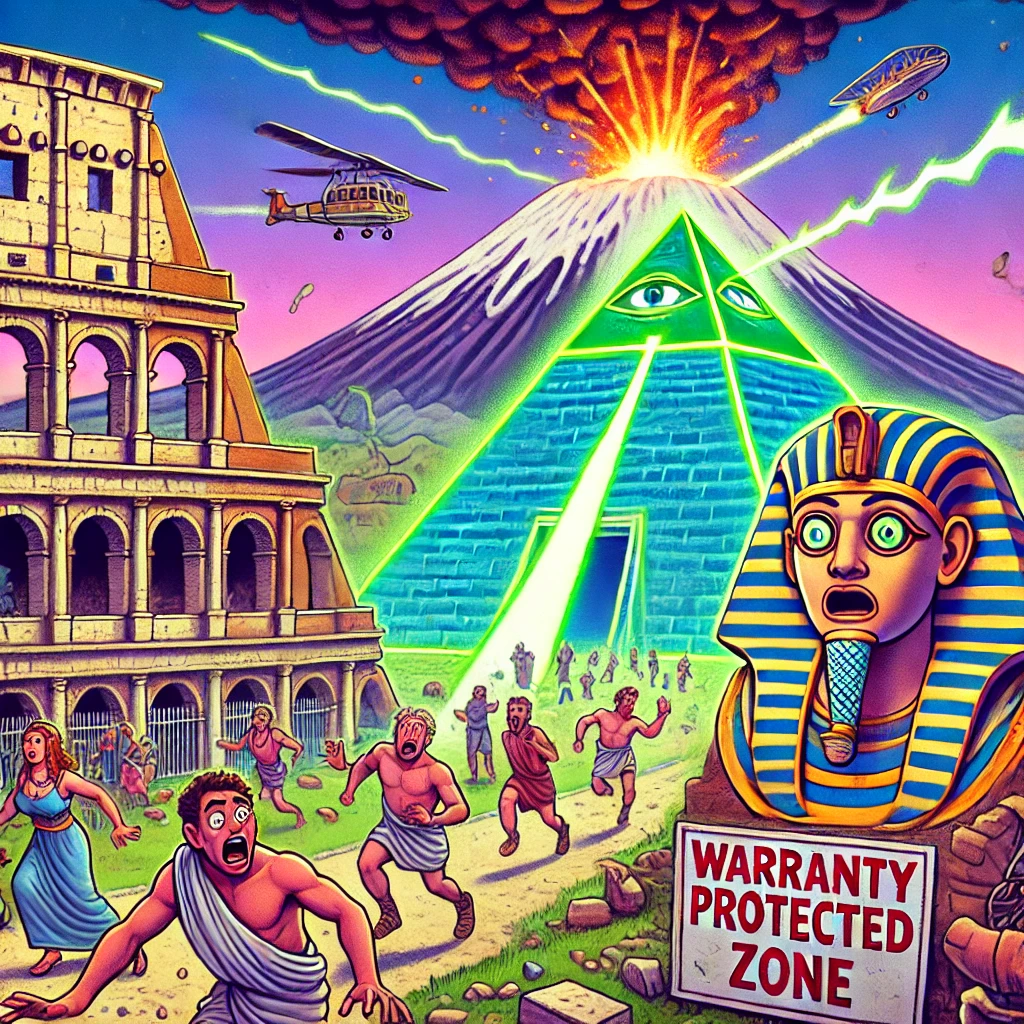As volcanic ash rained down on the ancient city of Pompeii in 79 AD, the panicked citizens likely had many regrets. Chief among them? Not investing in extended pyramid warranties.
According to new “historical” evidence uncovered by the BigArcheology investigative team, extended pyramid warranties were not limited to Egypt but were a hot commodity across the ancient world—until the citizens of Pompeii decided they were too good for them.
“Pompeii’s urban elite believed that a pyramid warranty didn’t apply to them,” explains Dr. Ash Laver, an archeologist who specializes in sarcastic digs. “They weren’t planning on building pyramids, and they figured Mount Vesuvius wouldn’t dare disrupt their luxurious lifestyles. Turns out, they were dead wrong.”
A recently unearthed stone tablet, found just outside Pompeii’s city center, provides shocking insight. The tablet is inscribed with what experts believe was a rejected offer from an enterprising Egyptian warranty salesman:
“For one modest payment in amphorae, your structures will be protected against collapse, curses, and catastrophic volcanic eruptions. Terms and conditions apply: offer not valid in Atlantis.”
Dr. Laver points to the arrogance of Pompeii’s residents as the root cause of their misfortune. “They were obsessed with frescoes and bread ovens, but no one thought to build a backup pyramid with alien-grade warranty coverage,” she laments. “Instead, they poured all their resources into flashy amphitheaters and public baths. Can you imagine? Baths. As if those would save them.”
Even more ironic, a travel itinerary from a Pompeii merchant reveals they often visited Egypt but dismissed pyramid technology as “too much hassle.” The notes from one trader read: “Visited Giza. Pyramids? Too pointy. No resale value.”
Historians now speculate that a “pyramid with warranty” might have offered a safe haven during the eruption. Instead of fleeing in chaos, Pompeiians could have gathered inside a reinforced, warranty-protected structure, complete with alien-designed airflow to filter volcanic ash.
Adding to the mystery, some researchers believe extraterrestrials did try to warn the citizens. “There are reports of strange lights and flying objects near Vesuvius shortly before the eruption,” says Dr. Laver. “The aliens might’ve been there to sell the deluxe intergalactic warranty package. But knowing Pompeii, they probably thought it was just another wine festival.”
Fast forward to today, and Pompeii’s tragic oversight serves as a cautionary tale. “Modern homeowners may scoff at extended warranties for their dishwashers,” says consumer historian Kayla Scarab, “but remember Pompeii. They thought their plumbing was safe, and now it’s an archeological site.”
Meanwhile, conspiracy theorists have taken this one step further. Some claim the eruption was engineered by an early version of Big Warranty. “The Egyptians were cornering the market on pyramid warranties,” says one viral tablet inscription enthusiast, “and Pompeii’s refusal to buy in was bad for business. What better way to send a message than a volcanic disaster?”
While we may never know the full truth, one thing is certain: the citizens of Pompeii gambled on their future and lost. And for modern skeptics who still roll their eyes at extended warranties? Well, let’s hope there’s no volcano nearby.
